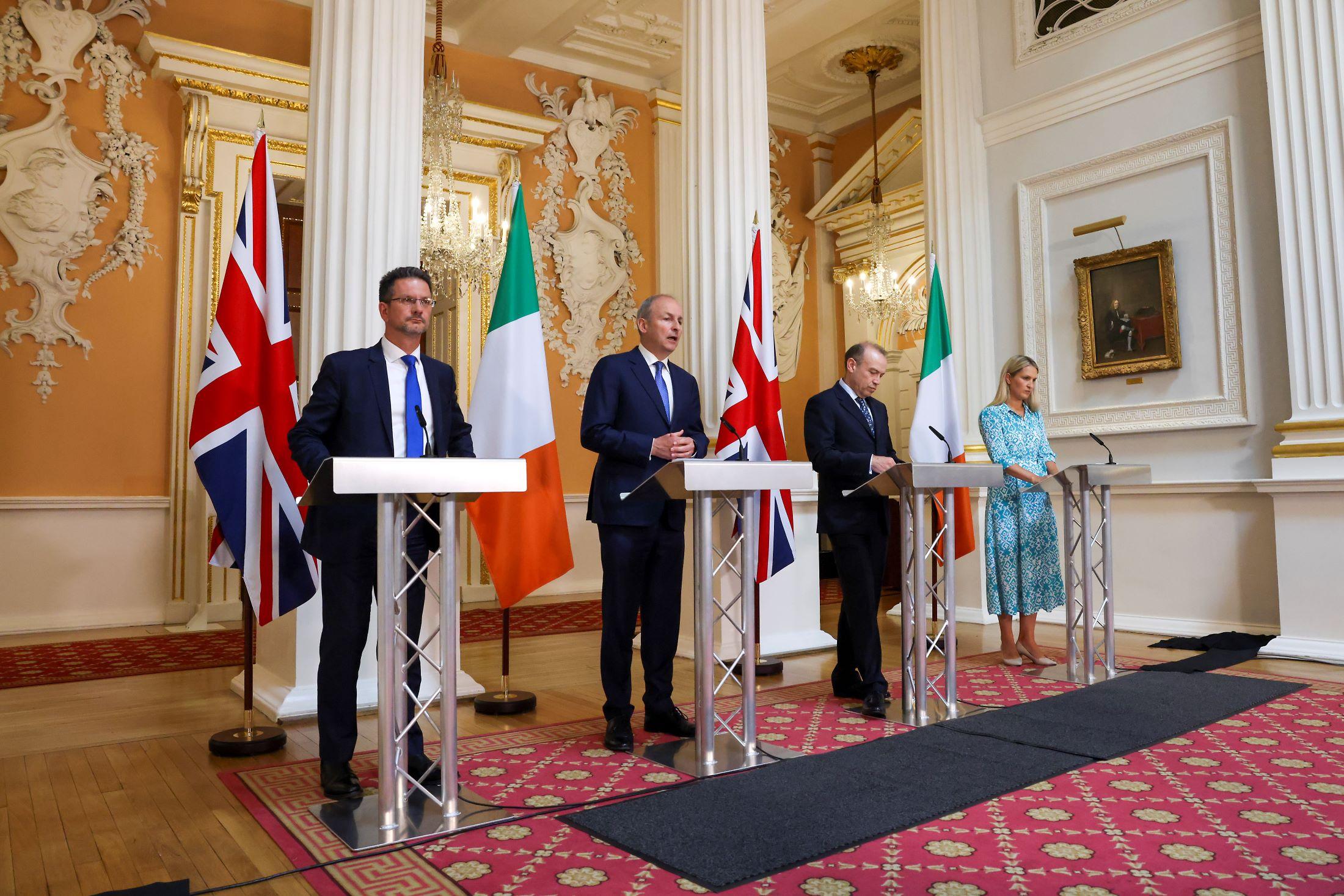Since Brexit, there has been a fragmented and incoherent approach to the regulation of healthcare products and medicines. Mark Dayan, Holly Jarman, Tamara Hervey and Mark Flear argue UK governments need to recognise that they have not succeeded in finding or implementing sudden quick wins from post-Brexit deregulation, and that they need a robust strategy for NHS supplies and medical industries facing instability.
This article is part of our series on policymaking in the UK after Brexit. For more analysis, visit the focus page.
One highly visible drama during the UK’s years on the precipice of a no-deal Brexit was the risk of widespread medicine shortages in the NHS. A deal with the EU, stockpiling and months of preparation softened the immediate blow. But, as our new research shows, the ongoing fact of Brexit has created a real dilemma for the UK, long home to a strong pharmaceutical sector and an NHS which excelled in getting enough medicines, medical devices and equipment at low cost.
Leaving the EU single market means the UK, and the NHS, no longer have access to the huge domestic market, sophisticated regulators, logistical chains, and international research initiatives that EU membership brought. Politicians and leaders have different strategies. Those who backed Brexit often favour aggressive divergence from EU standards to try to compete, while the industries themselves largely favour staying as aligned as possible to ease trade and secure cheaper prices for NHS supply.
In our recent article, we find that the UK has struggled to adopt either strategy, or to work out a competitive way forward. To understand how we got here, we assess why simple narratives do not explain post-Brexit challenges, and how the limitations of the UK’s new circumstances and the capabilities of its government confine its choices.
Over-simplified narratives
Over-simplified narratives of Brexit conflate regulatory content and process. For many areas of health products regulation, like clinical trials or medical devices, the actual content of safety standards is international – with some exceptions, like data protection. This allows for a “global Britain” narrative in policy discussions, creating a false impression that there is no need to choose a policy alignment.
But even if regulatory content is internationally determined, the process by which compliance is demonstrated and decided differs widely. This is where difficult choices have faced the UK, which has reacted without a consistent plan. The EU generally does not recognise regulatory processes that take place outside the rules of its single market. But the UK asked for benefits from some aligned regulatory processes, successfully negotiating continued EU recognition for UK medicine factory inspections, although not for UK batch tests for medicines.
Why is it so difficult to choose either the path of alignment or divergence? The contrasting cases of medicines and medical devices since Brexit give an excellent example. There is nothing about these products that suggests a different strategy for each is a logical or coherent policy position: the NHS needs medicines, medical devices and equipment equally to treat its patients. But the policy approach has been totally different.
Alignment on medical devices and equipment
The UK has adopted a strategy of alignment for medical devices and equipment, insofar as it can. In Northern Ireland, both regulatory content and regulatory process remain entirely aligned under the Protocol agreed with the EU. For Great Britain (GB), regulatory content remains completely aligned in one direction – with the UK unilaterally recognising the EU’s regulatory process, CE marking, for at least another five years.
But continued alignment is not a viable long-term solution to Brexit’s frictions – and has happened more by panicked reaction than by choice. First, alignment itself is controversial. The UK initially planned to stop recognising EU-approved devices in favour of its own UKCA mark in July 2023, but was forced to delay this repeatedly as industry groups warned of “a significant challenge for patients to be able to access life enabling technologies”. For some products, European CE marks will continue to be recognised until 2030.
Continued alignment is not a viable long-term solution to Brexit’s frictions
Second, there are problems with relying on EU regulators to sign off products used in GB. The EU, with pre-existing plans and far more policymaking capacity, has changed and evolved more quickly than the UK. Its new Medical Devices Regulations overhauled multiple elements of the approvals process on which the UK is forced to depend. These changes caused a capacity crisis for the privatised EU regulators or “notified bodies” which issue CE marks, causing delays and exposing producers and suppliers in GB to regulatory risks their governments had no ability to control.
Third, accepting EU approvals does not meet the need for GB to compete. There is no prospect of recognition of British exports approved in the UK, and customs and migration barriers continue to make the British market less appealing. This is reflected in the latest proposals from the UK medicines and healthcare products regulator (MHRA), which introduce updates comparable to those in the EU but also suggest new routes to the UK market intended to be faster and more appealing. Exactly what these might be, beyond accelerated recognition of other countries’ approvals, has yet to be fleshed out. The forced strategy of accepting overseas regulators will continue to give firms a significant incentive not to bother even with slightly faster UK routes to market.
Divergence on medicines
UK governments have tried harder to test the possibilities of divergence in the regulation of medicines for GB, in attempts to improve efficiency or boost competitiveness. Divergence in regulatory content remains limited – for the time being, GB is following inherited EU medicinal authorisation regulation and there are no clear proposals for change. But regulatory process is a different matter, with MHRA performing duties for GB which were previously exercised by the European Medicines Agency (EMA), allowing it to make different decisions such as approving some products not yet approved by EMA and creating new initiatives with global and domestic bodies.
Controversially, in Northern Ireland both regulatory content and regulatory process currently remain aligned for most medicines (with limited allowances and alterations under the Protocol on Ireland/Northern Ireland included in the Withdrawal Agreement). But under the Windsor Framework, within a continuing framework of EU law, UK authorisations would determine medicine availability within NI, creating divergence from the EU approach.
Outside of NI, there has been real divergence in limited areas including licensing, clinical trials and procurement. The UK introduced the Innovative Licensing and Access Pathway (ILAP) in March 2021 to speed up authorisation and access to medicines, potentially improving on a less efficient EU process. In clinical trials, MHRA can be seen as aligning more with the new EU regulation in many respects, but its proposals do contain some areas of genuine divergence, such as fewer safety reporting requirements. Divergence in procurement is likely following the introduction of a new Bill. However, quite what this will entail remains unclear, with details being left for subsequent guidance.
But despite areas of limited divergence, there remains a desire to ensure timely access to medicines. To this end, MHRA operates a “reliance route”, accepting EMA decisions on cutting-edge and novel drugs covered by the centralised procedure. MHRA also continues to accept the decisions of individual EU member states through processes mirroring those of the EU.
Enough capacity to keep up?
Regulatory capacity is an important constraint on the UK’s ability to chart its own course. The EU has continued to change and expand its regulation of health products rapidly, introducing long-planned systems for controlling falsified medicines, streamlining clinical trials regulation and legislating for greater cooperation in assessing which products ought to be purchased and provided by health systems. A major reform of EU medicines regulation is under way.
Meanwhile, the UK risks falling behind in approving innovative medicines. The UK government has reduced the budget and capacity of the MHRA considerably, unwilling to replace funding lost now that the regulator no longer receives contracts from the EMA. The impact of this is implicitly recognised in a new funding commitment made in early 2023 following a warning from the UK Chief Scientific Advisor that slow approval of innovative drugs could worsen mortality. Rhetoric from the UK Treasury emphasised “allowing the regulator to maximise its use of Brexit freedoms”, but in parallel to this also promised faster acceptance of EU authorisation, driven by a pragmatic need to make the drifting regulatory system capable of keeping up. If anything, the UK is now looking to increase its reliance on foreign regulators for most products, expanding partnerships with agencies in the US, Europe and Japan as a way of speeding up approvals.
Drifting in the wake of Brexit
The narrative that depicts the UK as newly freed to diverge from a stationary EU is false – the reality is much more complex. What is needed is a robust, coherent strategy to ensure that the NHS can get the products that it needs, not ideology-driven rhetoric. People in the UK deserve a grown-up, honest conversation about the UK’s future, which takes into account a realistic assessment of its size in global markets, the needs of health services in its nations, and the special place of Northern Ireland, which is likely to continue.
This post draws on the findings of the recent research article “Parallel, divergent or drifting? Regulating healthcare products in a post-Brexit UK” (Journal of European Public Policy, 2023)
All articles posted on this blog give the views of the author(s), and not the position of LSE British Politics and Policy, nor of the London School of Economics and Political Science.
Image credit: Maria Ionova via Unsplash.







